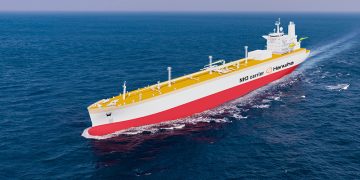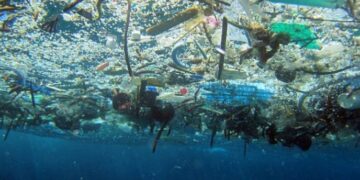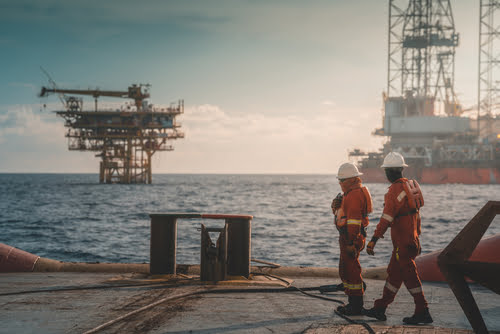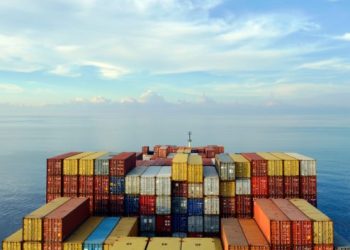ICS published a guide in order to recommend practical steps which can be taken in the unfortunate instance of a death on board a ship.
Mistaken death
A person who has taken large doses of certain drugs, usually sedatives or tranquillisers, or is suffering from hypothermia, may appear dead but could still be alive. Check carefully for shallow breathing, a pulse and heart sounds, as described above. Being aware of these possibilities may prevent a mistake being made. The circumstances surrounding the death may also help you to decide whether a drug overdose or hypothermia are possible.
Cause of death
It is important to try to establish the reasons for death which comprise two main groups: natural causes and illnesses/injuries, either accidental or non-accidental.
[smlsubform prepend=”GET THE SAFETY4SEA IN YOUR INBOX!” showname=false emailtxt=”” emailholder=”Enter your email address” showsubmit=true submittxt=”Submit” jsthanks=false thankyou=”Thank you for subscribing to our mailing list”]
If the person has been ill on board, consult the records of the nature and progress of the illness and of any treatment given, and keep these records carefully for any further enquiries.
Record all telemedicine consultations.
Similarly, in the case of injuries, investigate and record the circumstances of the incident resulting in the injury or injuries. Carefully preserve notes of the investigations and medical records.
Medico-legal enquiries will subsequently be necessary even when there may appear to be no apparent criminal or suspicious circumstances surrounding a death. In cases of unusual death, sudden or unknown, or of potential criminal intent, a pathologist will perform a post-mortem examination.
Procedure after death
#1 When handling the deceased
- Avoid direct contact with the blood or body fluids from the deceased;
- Observe strict personal hygiene and put on appropriate personal protective equipment (PPE) including gloves, a water resistant gown/plastic apron over a water repellent gown and a surgical mask. Use goggles or a face shield to protect your eyes if there could be splashes from bodily fluids;
- Cover any wounds with waterproof bandages or dressings;
- Remove PPE after handling the deceased; and
- Wash hands with liquid soap and water immediately.
#2 Before preparing the deceased
- Use a camera to take photographs to help illustrate how the death may have occurred for any investigation. All images should remain ‘in confidence’ and be treated in line with any company standard operating procedures (SOPs);
- Strip the body of all clothing, ideally without tearing or cutting it. Write a brief description of each article and note any initials or names on the garments;
- Any papers, wallet, money, or other articles should be listed. Any wet articles which are wet should be dried but not laundered, and placed into plastic bags, sealed, labelled, and kept in a safe place for handing over to the consulate, police, or other authorities at the next port. When handing over clothing and other
articles, check each item against the list and get a receipt from the person to whom they are delivered. Any other possessions of the deceased should be treated similarly. If there is going to be a slight delay before reaching port, leave everything undisturbed; and - If it is essential to bury the body before examination by a pathologist, examine the body carefully.
Suspected suicide
In a case of suspected suicide, a full detailed report should be made which includes:
- Any expression of intent, any reasons, circumstantial or otherwise given for the seafarer’s altered state of mind;
- Any letters or suicide notes, which should be retained by the Master as key evidence;
- Reports made by each crew member who may have evidence for the death;
- Records of any dialogue and intervention made, including any telemedicine facility; and
- Records which are contemporaneous and accurate. Images should be taken of the body identified at the time of death/discovery.
Body removal
Wrap the deceased in a bed sheet/linen. Ideally, they should be placed in a robust and leak-proof transparent plastic bag of not less than 150 cm thick, which should be zipped closed.
A deceased person who is soiled with blood or body fluids should be placed in a disposable plastic bag instead of linen. A secondary robust opaque body bag should be used with carry handles to ensure that the bag can be safely removed to refrigeration. Attach an appropriate identity label to the body bag before transporting it to the temporary ‘on board mortuary.’
Body storage
#1 Do not place the body in the freezer
It is a common misconception that the best way to preserve a dead body is to freeze it. When a body is frozen, the tissues dehydrate and the body develops freezer burn, causing the skin to discolour. This can make it impossible for family members to recognise the deceased and may make interpretation of any premortem injuries difficult. Efforts should be made to minimise distress to family members, who will clearly be going through an exceedingly difficult and emotional time.
Rapid freezing of bodies can also cause post-mortem injury, including cranial fracture.
Handling bodies when they are frozen can cause fractures, which will negatively influence the investigation and make medico-legal interpretation of examination results difficult.
It takes about three days for a frozen body to thaw before an autopsy can take place, and the body will decompose much more quickly than if it had been refrigerated. There is a danger of losing vital information if the body is frozen rather than refrigerated.
#2 Store the body in the refrigerator
If it is anticipated that the body will not be stored on board for longer than two months, then the body should be refrigerated. In the unlikely event that a body must be stored on board for longer than two months, then freezing or embalming may be necessary. The P&I Club should be involved in all decision-making if it is necessary to store a body on board for a lengthy period.
Whenever possible, the body should be retained for post-mortem examination and for burial ashore by the family. For the sake of the deceased person’s relatives, it should be preserved in the best possible condition, and kept in a suitable and secure place.
The body should be placed in a body bag and stored in a refrigerator or cold store, set aside for that purpose, at approximately 4° Celsius/39° Fahrenheit. Do not allow the body to be stored at temperatures below +2°C. Store off the cold chamber floor, if possible, with the identity label visible on the outside of the body bag.





























































